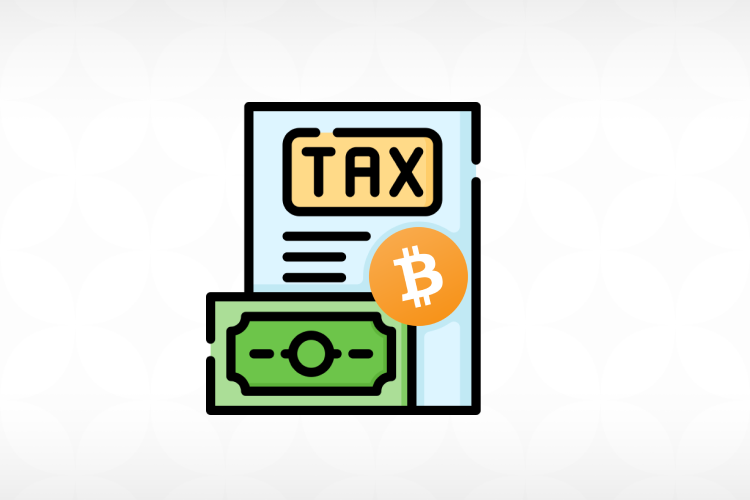
The world of cryptocurrencies has grown exponentially, with more and more people investing in digital assets like Bitcoin, Ethereum, and many others.
While the potential for profits is exciting, tax season can be daunting for crypto investors. The complex nature of crypto transactions and constantly changing regulations can make filing taxes challenging.
However, there's good news! With the advancement of technology, several software tools have emerged to make crypto tax reporting a breeze. This article will explore the best software tools available to streamline your crypto tax filing process, making it easy and hassle-free.
Understanding Crypto Taxation
Before we dive into the software tools, it's essential to have a basic understanding of crypto taxation. In many countries, cryptocurrencies are treated as property for tax purposes. This means that every crypto transaction, whether buying, selling, or even trading one cryptocurrency for another, can trigger a taxable event.
Additionally, capital gains tax, income tax, and holding period affect how much tax you owe on your crypto investments. Keeping track of all these details can be overwhelming, but that's where crypto tax software comes to the rescue.
Top Crypto Tax Software Tools
1. CryptoTrader.Tax: One of the leading crypto tax software tools, CryptoTrader.Tax allows you to import your crypto transactions from various exchanges and wallets. The software then automatically calculates your gains, losses, and tax liability. It generates tax reports that are compatible with tax forms in different countries, making the filing process straightforward. With CryptoTrader.Tax, you can save hours of manual calculations and have confidence in the accuracy of your tax report.
2. CoinTracking: CoinTracking is another popular choice for crypto tax reporting. It supports over 7,000 cryptocurrencies and offers a range of features to help you track your portfolio and tax obligations. The software provides real-time data on your crypto holdings and generates detailed tax reports for various purposes, including capital gains, income, and gifts. CoinTracking also offers a mobile app for easy access to your crypto portfolio on the go.
3. TokenTax: If you're looking for a user-friendly interface and seamless integration with multiple exchanges and wallets, TokenTax might be the perfect fit for you. This software simplifies importing your crypto transactions and provides in-depth tax reports, including a tax-loss harvesting feature to optimize your tax liability. TokenTax's customer support is highly praised, ensuring you receive assistance with any tax-related queries.
Tips for Using Crypto Tax Software Effectively
While crypto tax software can significantly simplify the tax filing process, there are a few tips to ensure you get the most out of these tools:
— Regularly Import Transactions: Make a habit of importing your crypto transactions regularly. This way, you stay up-to-date with your tax obligations throughout the year, avoiding any last-minute rush during tax season.
— Double-Check Data Accuracy: Although crypto tax software is reliable, it's essential to double-check the imported data to ensure accuracy. Mistakes in transaction data can lead to incorrect tax reports, so always review the information.
— Understand Tax Rules: While the software automates calculations, it's crucial to have a basic understanding of crypto tax rules in your country. Being aware of tax brackets, exemptions, and applicable deductions can help you interpret the reports better.
Common Mistakes to Avoid
As convenient as crypto tax software is, it's essential to be aware of common mistakes that people make during tax filing. One common error is forgetting to account for every crypto transaction, especially small ones like microtransactions or airdrops.
Another mistake is misclassifying the type of crypto transaction, such as confusing a transfer with a sale. By understanding these pitfalls, you can ensure accurate tax reporting and avoid potential issues with tax authorities.
Tax Implications of Staking and DeFi
With the rise of decentralized finance (DeFi) and staking, crypto investors need to be aware of the tax implications of these activities. Staking rewards and earnings from DeFi protocols are often considered taxable income. Crypto tax software should be capable of handling these complex transactions to ensure accurate reporting and prevent surprises during tax season.
Keeping Records Secure and Compliant
When dealing with sensitive financial information, data security is of utmost importance. Choose crypto tax software that prioritizes data encryption and follows industry-standard security protocols.
Additionally, ensure that the software complies with relevant tax regulations to avoid any legal issues. Keeping your records secure and compliant provides peace of mind and protects your financial information from unauthorized access.
Conclusion
Crypto tax software has revolutionized the way crypto investors handle their tax obligations. By leveraging the power of technology, you can simplify the entire process and ensure accurate reporting of your crypto transactions.
Choose a reliable and user-friendly software tool like CryptoTrader.Tax, CoinTracking, or TokenTax, and stay on top of your crypto tax game. With these tools in hand, you can easily file your crypto taxes, freeing up time to focus on what matters most — your crypto investments.
So, take advantage of these software tools and make crypto tax filing an easy and stress-free experience. Happy filing, and feel free to come over here for more information.













